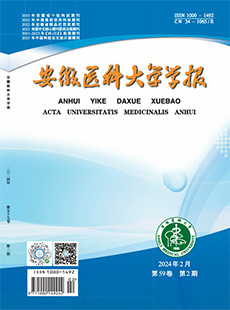Xu Wenjin; Xie Yuxin; Lin Xinyue; Wang Xin; Jiang Wei; Wei Shijie; Liu Qiang; Liao Xiang
DOI: 10.19405/j.cnki.issn1000-1492.2025.07.017
abstract:
Objective To study the effect of metformin sensitizing pancreatic cancer cells with radiotherapy, with a focus on elucidating the underlying mechanisms of radiotherapy resistance. In particular, the role of the PERK/P-eIF2/ATF4 signaling pathway in mediating these effects was preliminarily explored. Methods Pancreatic cancer cell lines(PANC-1 and PANC-2) were categorized into control, radiotherapy, and drug treatment groups. Following the respective treatments, cell proliferation inhibition was assessed using the CCK-8 assay, colony formation assays, and cell death staining. Senescence was quantified by β-galactosidase(SA-β-Gal) staining. The expression of cell cycle regulators(P21, P16, γ-H2AX), apoptosis markers(Bax, Bcl-2, Cleaved caspase-3), and pathway-related proteins(PERK, P-eIF2, ATF4) was evaluated by Western blot and immunofluorescence. To further investigate the role of the PERK/P-eIF2/ATF4 axis in metformin-mediated modulation of pancreatic cancer cell senescence and radiosensitization, selective inhibitors(GSK2606414) and agonists(MK-28) of PERK were employed. Results Radiotherapy markedly upregulated senescence-associated markers(P21, P16, γ-H2AX, and β-galactosidase activity) in pancreatic cancer cells. Senescent cells exhibited enhanced proliferative activity and increased tumor volume both in vitro and in vivo. Metformin mitigated radiotherapy-induced senescence by reducing the expression of senescence markers and significantly suppressing the clonogenic and proliferative capacity of treated cells. Mechanistically, radiotherapy activated the PERK signaling pathway, leading to increased expression of PERK, P-eIF2, and ATF4, thereby driving cellular senescence. Pharmacological inhibition of PERK reduced β-galactosidase activity, while PERK activation further promoted the expression of senescence-associated proteins—an effect that was reversed by metformin. Conclusion Metformin inhibits the activation of the PERK/P-eIF2/ATF4 signaling pathway in pancreatic cancer cells following radiotherapy, thereby delaying cellular senescence and reducing the associated radiotherapy resistance of senescent cells. This modulation contributes to the sensitization of pancreatic cancer cells to radiotherapy.
 WeChat official account
WeChat official account
 WeChat Mini Program
WeChat Mini Program
 微信公众号
微信公众号
 微信小程序
微信小程序




 News
News Notice
Notice